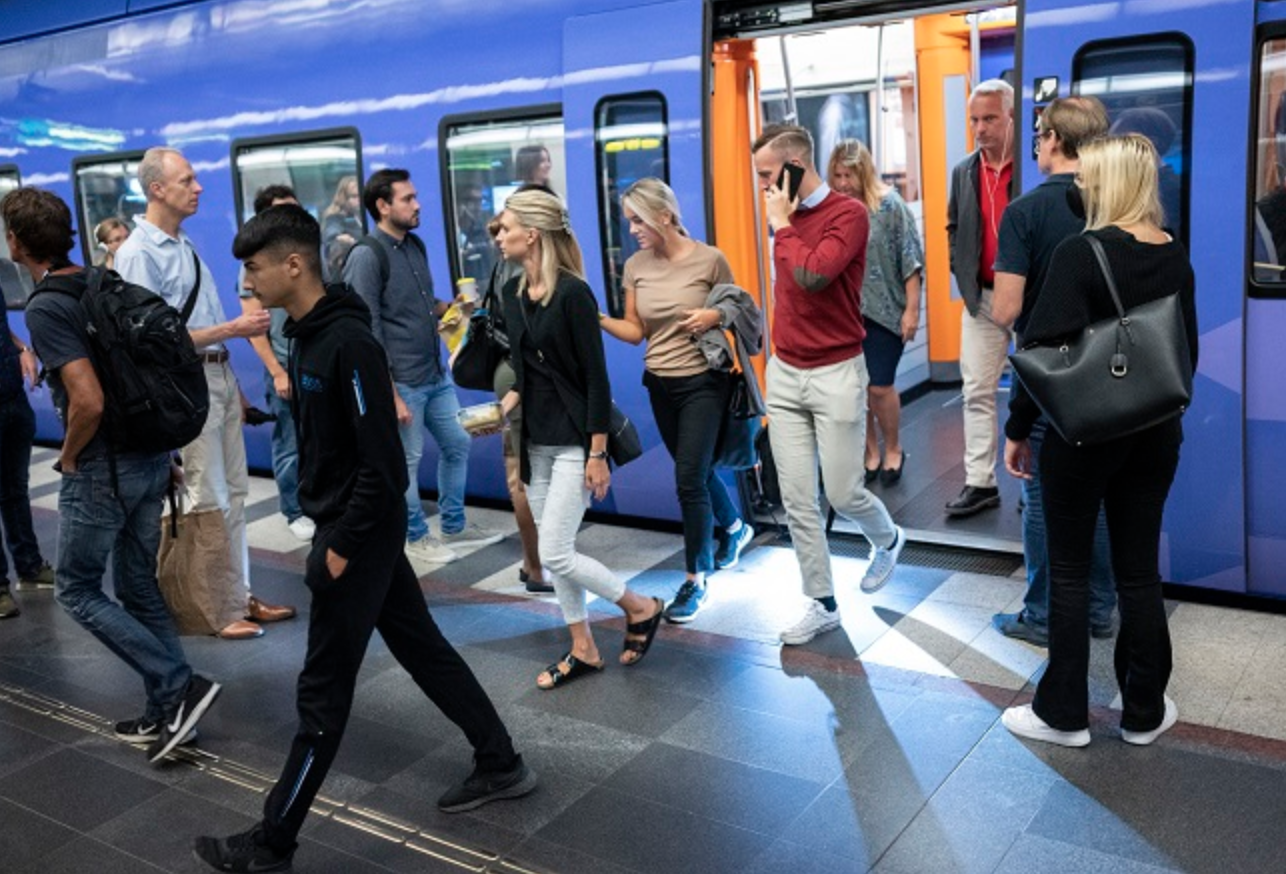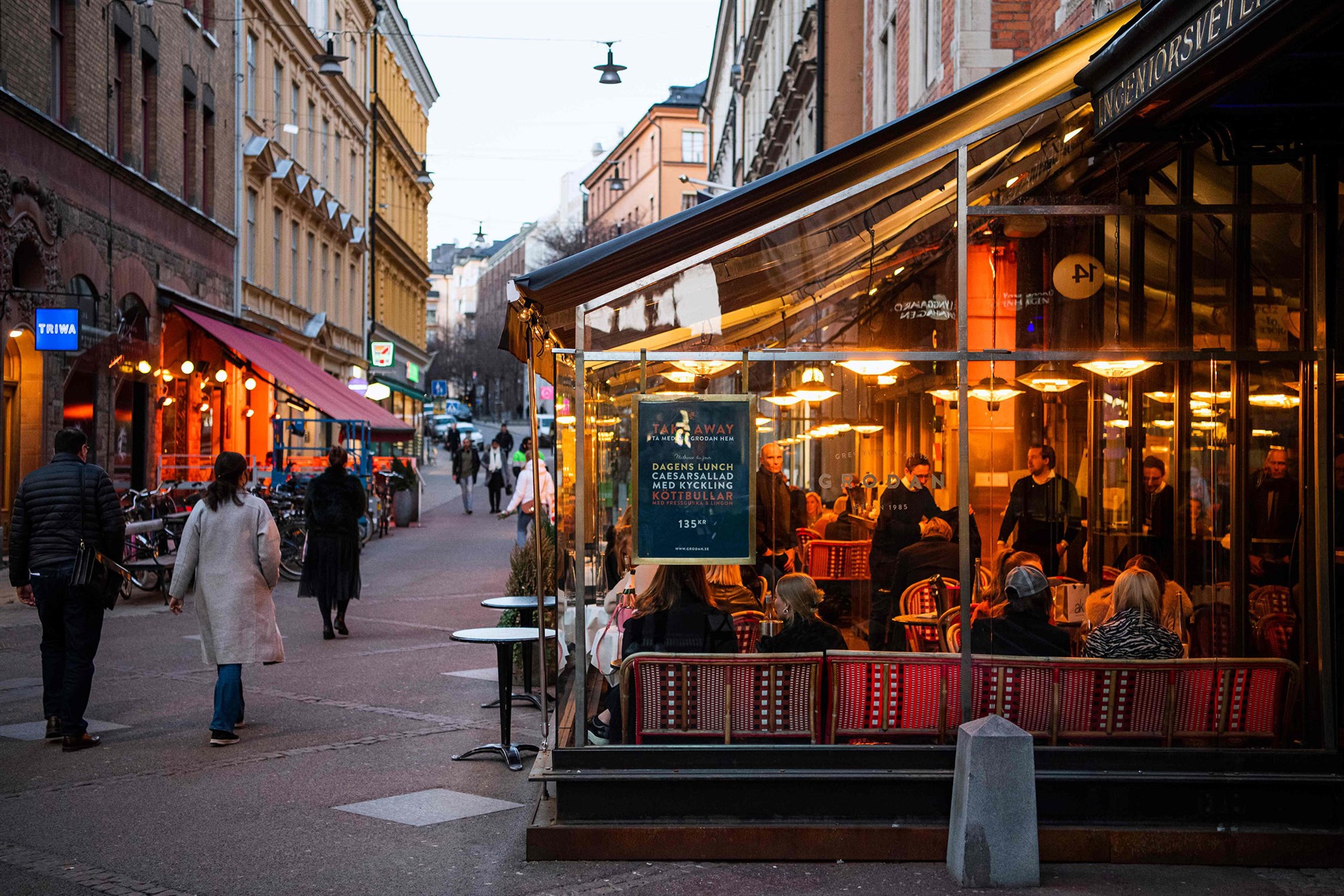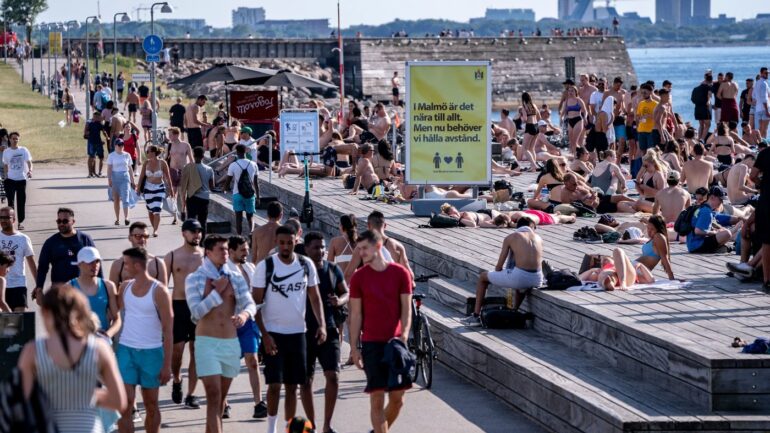The short answer: no.
***
When the rest of Europe closed their doors, locked down, and donned protective masks, Sweden just… didn’t.
Restaurants continued operating at full capacity, nightclubs bustled, schools remained open. Officials even advised against the widespread wearing of masks. The only health precautions taken were slight restrictions to encourage social distancing. Crowds of up to 50 were still allowed to gather, a stark contrast against the measures taken across the rest of the continent.
In a politically ironic twist, the “Swedish Model” became celebrated by American conservatives appalled by the economic effects of shutting down various institutions and businesses to prevent virus spread. In May, President Trump even expressed a desire to “follow Sweden,” citing their strategies as a role model for best health practices. Before the pandemic, the president had a track record of loving to hate Sweden, often mentioning their Democratic socialist policies in his speeches as the antithesis of his vision for America.
Both critics and fans of Sweden’s pandemic policies have watched expectantly to see whether this Swedish Experiment has had any success.
The Swedish Experiment: Predictions and Results

The idea behind the experiment was that the extra exposure during the first wave of the pandemic would protect Swedes when the second wave hit. A cultural desire for individual independence reinforced this laissez-faire strategy.
Sweden’s Chief Epidemiologist Anders Tegnell predicted that Sweden’s approach would be just as effective as the lockdowns in neighboring countries, but that allowing a gradual spread of Covid-19 would give Swedes an edge in immunity. If true, this prediction would have meant that Sweden would have done better in a second round of the virus than would Finland and Norway, neighboring Nordic countries that both dodged the first wave of the pandemic.
However, with the world watching, Sweden’s prediction failed to come to pass.
The second wave in full swing, 1 in 5 people in Sweden’s capital, Stockholm, are testing positive for the coronavirus. Meanwhile, neighboring Finland has seen only a small rise in cases. It seems the predictions made about the Swedish Experiment lacked merit, with a large portion of the country’s population now paying the price.
Hospitals are admitting patients in Sweden faster than in any other country in Europe. The rapid spread of the virus has decimated their nursing homes and deaths in Sweden are more than four times higher than the combined deaths in all neighboring Nordic countries.
Not even the economy benefitted from this lack of regulation – Sweden has done worse economically than neighboring countries, with an 8.6% drop in GDP.
Despite the numbers, Tegnell remains steadfast in his determination to continue with the plan he set into motion so many months ago.
He told Reuters on Friday, “We will keep on this path. This is how we work in Sweden. We have a big understanding for this and a huge adherence to the rules.”
Mixed Messages

Since late October, the country has had strict measures in place to prohibit socialization between households, but these guidelines are voluntary.
Even more confusing, the government is telling its citizens to refrain from going to restaurants, nightclubs, salons, and shops, yet these businesses have been allowed to remain open despite the contradictory guidelines.
Bewildered by the mixed messages sent by the government, citizens are blaming the country’s leaders for the stark rises in cases.
“It’s complicated,” said café owner Gudrun Richter. “They tell people not to go out and eat, but restaurants are allowed to stay open; they tell people not to go shopping, but the malls are still open as normal.”
“If we are a threat to health,” said Johan Muren, a restaurant owner in Stockholm, “I think we should be closed down.”
Tegnell’s list of measures to prevent the spread of the virus has become more extensive, but they are only recommendations, with an emphasis on individual responsibility. Despite the voluntary nature of his guidelines, Tegnell laments that too many are not following his advice.
What now?

Now, Sweden is tightening restrictions. Bars and restaurants are now required to close at 10:30pm, and people may no longer gather in crowds of more than eight people.
Still, some are saying this is not enough – that the government should have been more decisive from the start, and that going forward the country needs tougher regulation.
Leader of the Swedish Moderate Party, Ulf Kristersson, has demanded that Prime Minister Löfven mandate nationwide mask-wearing in public spaces.
An opinion piece in Debatt reflects the advice of 26 researchers and doctors for rules that should be bolstered in order to mitigate the growing crisis in the country. Among these suggested rules, a requirement for those living with someone who has tested positive for Covid-19 to quarantine longer than seven days, and for this guidance to extend to children.
On the other side of the spectrum, there are those who revere the government’s pandemic policies, who don’t want anything to change. One man even sports a tattoo of Tegnell on his bicep, proudly stating his admiration for the government official: “He has been our … national hero in this crisis.”
Anders Eidsvik remains grateful for the freedom his country has retained throughout the pandemic, despite being an elderly patient sick with Covid-19.
He says, “It shouldn’t be too easy to close down the society, I believe.”


